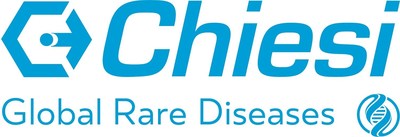Protalix BioTherapeutics and Chiesi Global Rare Diseases Announce Submission of Biologics License Application to U.S. Food and Drug Administration for Pegunigalsidase Alfa for the Treatment of Fabry Disease
CARMIEL,
The BLA submission includes a comprehensive set of preclinical, clinical and manufacturing data compiled from the Company's completed Phase I/II clinical trial of pegunigalsidase alfa, including the related extension study succeeding the Phase I/II clinical trial, interim clinical data from the Phase III BRIDGE switch-over study and safety data from the Company's on-going clinical studies of PRX‑102. Upon the BLA approval, if approved, the Company will be eligible to receive a milestone payment from Chiesi.
"We are grateful for the assistance the FDA provided leading up to the submission of this BLA via the Accelerated Approval pathway, and we look forward, together with Chiesi, to working with the FDA as we seek marketing approval for PRX‑102," said
"The submission of this BLA to the FDA represents a significant milestone for our Global Rare Diseases division that was established earlier this year to strengthen Chiesi's focus on making a difference for patients living with rare diseases around the world," said
About Fabry Disease
Fabry disease is an X-linked inherited disease that results from deficient activity of the lysosomal α‑Galactosidase‑A enzyme resulting in progressive accumulation of abnormal deposits of a fatty substance called globotriaosylceramide (Gb3) in blood vessel walls throughout a person's body. Fabry disease occurs in one person per 40,000 to 60,000. Fabry patients inherit a deficiency of the α‑Galactosidase‑A enzyme, which is normally responsible for the breakdown of Gb3. The abnormal storage of Gb3 increases with time and, accordingly, Gb3 accumulates, primarily in the blood and in the blood vessel walls. The ultimate consequences of Gb3 deposition range from episodes of pain and impaired peripheral sensation to end-organ failure – particularly of the kidneys, but also of the heart and the cerebrovascular system.
About Pegunigalsidase Alfa
Pegunigalsidase alfa (PRX‑102) is an investigational, plant cell culture-expressed, and chemically modified stabilized version of the recombinant α-Galactosidase-A enzyme. Protein sub-units are covalently bound via chemical cross-linking using short PEG moieties, resulting in a molecule with unique pharmacokinetic parameters. In clinical studies, PRX‑102 has been observed to have a circulatory half-life of approximately 80 hours. The Company designed PRX‑102 to potentially address the continued unmet clinical need in Fabry patients.
About Chiesi Global Rare Diseases
Chiesi Global Rare Diseases is a business unit of the
About
Based in
About
Forward-Looking Statements
To the extent that statements in this press release are not strictly historical, all such statements are forward-looking, and are made pursuant to the safe-harbor provisions of the Private Securities Litigation Reform Act of 1995. The terms "expect," "anticipate," "believe," "estimate," "project," "plan," "should" and "intend," and other words or phrases of similar import are intended to identify forward-looking statements. These forward-looking statements are subject to known and unknown risks and uncertainties that may cause actual future experience and results to differ materially from the statements made. These statements are based on our current beliefs and expectations as to such future outcomes. Drug discovery and development involve a high degree of risk and the final results of a clinical trial may be different than the preliminary findings for the clinical trial. Factors that might cause material differences include, among others: that the FDA might not grant marketing approval for PRX‑102 in the currently anticipated timeline or at all and, if approved, whether PRX‑102 will be commercially successful; failure or delay in the commencement or completion of our preclinical and clinical trials which may be caused by several factors, including: risks that the FDA will not accept an application for accelerated approval of PRX‑102 with the data generated to date or will request additional data or other conditions of our submission of any application for accelerated approval of PRX‑102; slower than expected rates of patient recruitment; unforeseen safety issues; determination of dosing issues; lack of effectiveness during clinical trials; inability to monitor patients adequately during or after treatment; and inability or unwillingness of medical investigators and institutional review boards to follow our clinical protocols; risks associated with the novel coronavirus disease (COVID‑19) outbreak, which may adversely impact our business, preclinical studies and clinical trials; the risk that the results of the clinical trials of our product candidates will not support our claims of safety or efficacy, that our product candidates will not have the desired effects or will be associated with undesirable side effects or other unexpected characteristics; risks related to our ability to maintain and manage our relationship with
Investor Contact
646-627-8390
chuck@lifesciadvisors.com
Media Contact
LaVoieHealthScience
857-588-3347
bpinkston@lavoiehealthscience.com
![]() View original content to download multimedia:http://www.prnewswire.com/news-releases/protalix-biotherapeutics-and-chiesi-global-rare-diseases-announce-submission-of-biologics-license-application-to-us-food-and-drug-administration-for-pegunigalsidase-alfa-for-the-treatment-of-fabry-disease-301066794.html
View original content to download multimedia:http://www.prnewswire.com/news-releases/protalix-biotherapeutics-and-chiesi-global-rare-diseases-announce-submission-of-biologics-license-application-to-us-food-and-drug-administration-for-pegunigalsidase-alfa-for-the-treatment-of-fabry-disease-301066794.html
SOURCE

